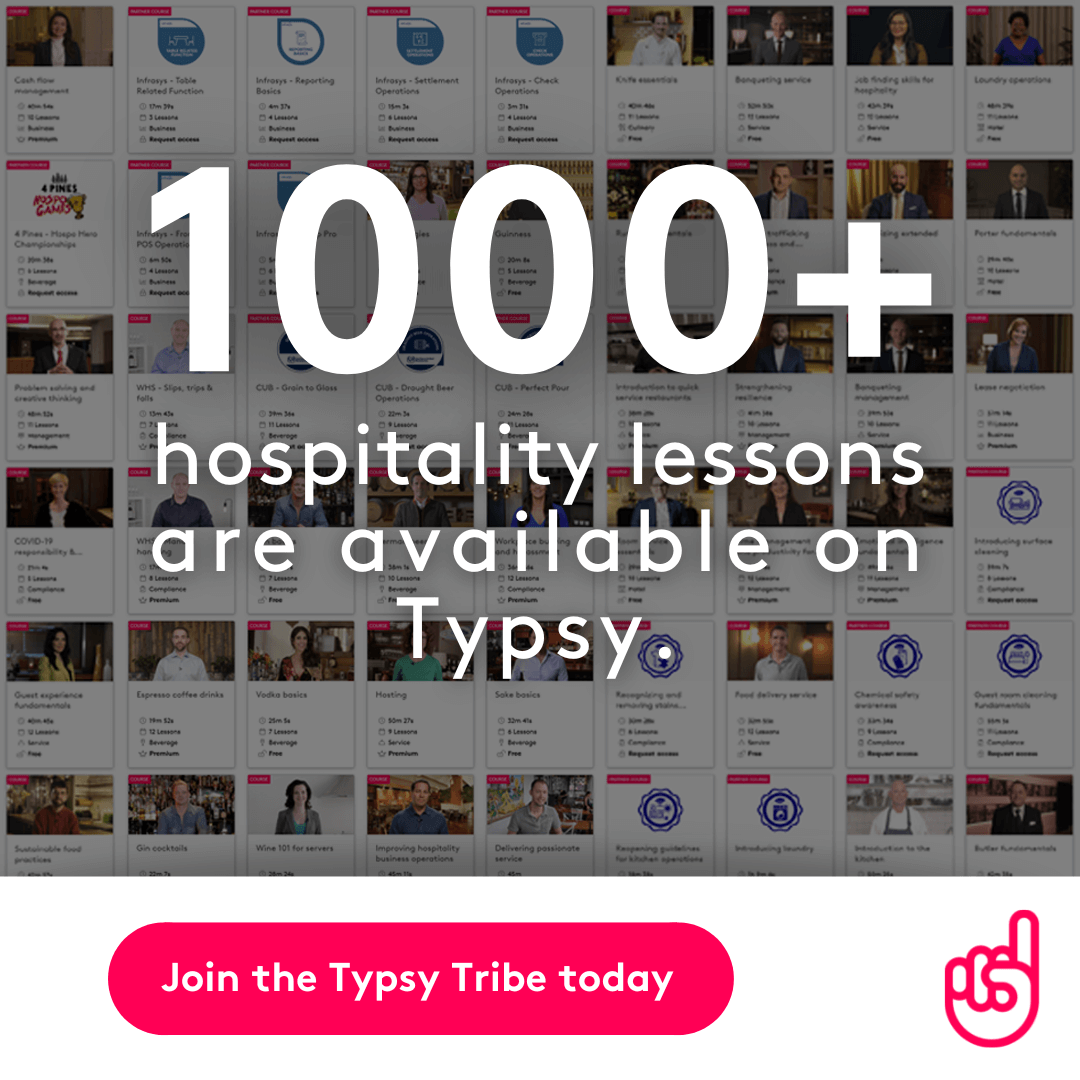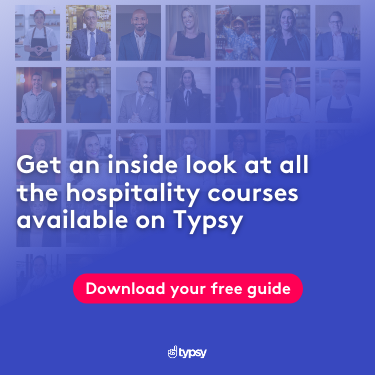Hospitality is a customer service, oriented industry. While your team should have some instincts about how to serve guests, they’ll also need rigorous training to ensure that they adhere to your hotel or restaurant’s high standards.
In this blog post, we’re sharing the best hospitality training tips and resources to transform your staff into hospitality superstars.
Interested in how software can help you supercharge your team? Check out the 2021 Restaurant Software Guide from Storekit.
1. Orientation
Like in most industries, training in the hospitality industry begins at orientation. It’s crucial to have an orientation session to introduce new hires to company culture and guidelines. Orientation sets the groundwork for all that’s to come and should be an overview of:
- Brand story: How was the company founded? What is its mission? What makes it different from other hotels or restaurants? Equip employees to be brand ambassadors.
- HR admin: Collect paperwork and go over benefits.
- Employee resources: Set expectations by reviewing staff guidelines, dress code, etc.
A comprehensive orientation will set your hospitality industry training off on the right foot.
2. Employee handbook
New team members should be given access to an employee handbook at orientation. Make the handbook comprehensive by including instructions for every role so that employees can cross-train or jump into another role if someone is out.
The handbook is useful as both an initial training tool and as a reference guide, so make it easily accessible to employees by:
- Having paper copies available in the back office at each location
- Emailing a digital version of the handbook to all existing employees
- Keeping digital copies on a dedicated drive (Google, Dropbox, etc.)
- Notifying employees of the handbooks’ accessibility through your company’s digital communication channels (e.g. Slack, social media, 7shifts Announcements)
When team members can easily access the employee handbook, they’ll be more likely to adhere to company guidelines.
3. Technology
Technology is an important part of the hospitality industry, and it's what keeps operations efficient — when employees know how to use it effectively by making technology training part of the onboarding process.
Even with hospitality experience, new hires may not be familiar with the latest hospitality technologies, like touchpad POS systems, app-based team communication tools, and scheduling tools.
Follow these steps to ensure that your staff knows how to use your hotel or restaurant’s tech tools properly:
- Give a live training session using the software
- Provide employees with any training material or resources from the technology provider
- Include instructions and troubleshooting in your employee handbook
- Keep all technology training and instructional material available on the company's dedicated cloud drive
When employees know how to use hospitality technology properly, they’ll be able to perform more efficiently.
4. Shadowing
Don’t put new staff on the front lines without having them shadow more experienced employees first. Reading about how to be a server or front desk manager is different from experiencing it. Shadowing lets new hires see their training in the hospitality industry put into action in a low-pressure situation.
Create shadowing requirements based on the complexity of skills that need to be mastered and employee experience. For example, a newbie housekeeper may need to shadow a veteran housekeeper for 20 hours, while an experienced housekeeper may only need five hours of shadowing to master the hotel’s processes.
Create assessments at the end of each shadowing program so that new hires can exhibit what they’ve learned. If they haven’t mastered all of the skills necessary to complete the job yet, they’ll need to spend more time shadowing an experienced staff member.
5. Manager coaching
The manager as a coach is a new concept in leadership. It helps to create a workplace in which employees see managers as coaches who observe their performance to help them improve, rather than critical, unapproachable bosses.
If you’re a manager, make subtle mindset shifts to coach your team. Inspire your employees by asking the right questions and providing feedback. Like an athletic coach, a manager coach watches team members to see how they’re performing individually and as a team to improve outcomes for both.
6. Courses
Continuing education is the key to keeping hospitality skills fresh. When you invest in your staff’s professional development, you make them feel like valued members of your team, which decreases employee turnover.
Create a professional development budget and let staff use it for courses and conferences that will sharpen their skills. You can also give staff access to an online database of the best hospitality training courses from Typsy to let them gain new expertise anytime, anywhere. For example, a waiter could use online courses to learn management skills that can help them apply for a promotion.
Make sure to continually monitor staff performance and progress to see who might need further hospitality industry training. Training your staff with an online platform like Typsy gives you incredibly useful insights as to who on your staff is really engaging with the material - and who might need some extra support or encouragement.
It's absolutely vital to prevent staff from becoming disengaged from their work - aside from anything else, staff turnover is incredibly expensive!
.png?width=828&name=Typsy%20%20We%20teach%20hospitality%20to%20the%20world%20%20typsy.com%20blog%20banner%20_%20(1).png)
Typsy's catalog contains over 1000+ lessons - and counting! - on a huge variety of topics. This means that you can assign exactly the lessons that fit your needs - and also that your team has the opportunity to up-skill their own interests, improving their engagement and morale.
Learning with Typsy is practical, effective, and fun! And best of all, you can access Typsy's 800+ lessons as and when it suits you.
Learn your way - starting today.
7. Training hospitality staff on-the-go
There are very few desk jobs in the hospitality industry. Hospitality professionals are always on-the-go, and their training should be able to keep up.
Make it easy for staff to access manuals and resources from their phones.
Here are some tips for making restaurant and hotel hospitality training resources accessible on the go:
- If you make your videos for training hospitality staff, upload them to your hotel or restaurant’s cloud-based drive and use your employee communication tool to announce their presence, or upload them to training platforms like Typsy using their Custom Content feature
- Share login credentials for your company’s hospitality industry training courses via the employee communication tool
- Upload employee handbooks to the drive and keep several printed copies in the office so that employees can borrow them when they don’t want to read on their phones
Whenever possible, look for tools that staff can access on the go and on the cloud rather than only through a computer at work.
The hospitality industry runs on customer service, which is an essential skill but can also be developed and improved through training. Hospitality industry training should be a continuous process and not a one-and-done deal. Here’s how to ensure your team gets the best hospitality training in the industry:
- Training hospitality staff doesn’t stop after orientation. Create a restaurant or hotel hospitality training process that includes technical training, shadowing, and access to the employee handbook
- Train managers to see their roles as those of coaches and mentors rather than just bosses
- Ensure that employees continue to learn by providing access to continuing education opportunities in person and on-the-go
 |
Ana Cvetkovic is a freelancer and content producer for 7shifts. She is also the CEO of BLOOM Digital Marketing, a Boston-based creative marketing agency that helps the hospitality and tourism industries reach new audiences online. |
You might also like:
.gif?width=1200&height=400&name=Hubspot%20Blog%20banner%20GIF%20(2).gif)






